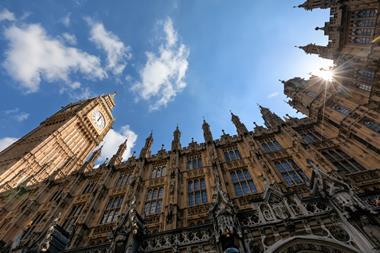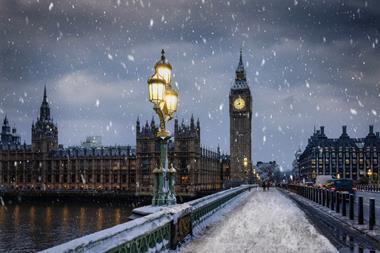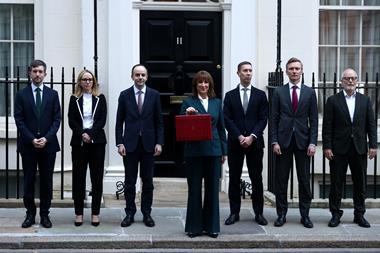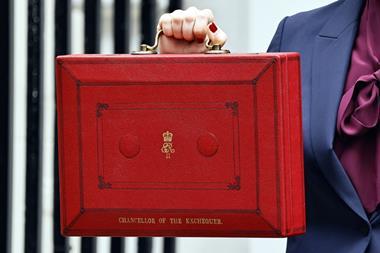David Fairs told Pensions Expert that we are still in the “very early days” of the Pension Schemes Act, which introduced a raft of new regulatory tools for the pensions watchdog.
Responding to widespread concerns about the scope, remit and applicability of the regulator’s new criminal powers, which have drawn much criticism from the industry, Fairs stressed that the consultation is still ongoing.
“We do need to think about what the consultation responses are and build that into our final policy,” he said.
“It’s very clear that experience will evolve, court decisions will clarify the sort of circumstances where these sanctions will apply. So, clearly, the entire policy will evolve depending on our experience and the experience of industry, and we will update the policy and monitor the situation as things go by.”
As covered previously by Pensions Expert, it is feared that uncertainty surrounding clause 107 of the act — which makes action or inaction that reduces the chance of members getting their benefits in full a criminal offence, and extends criminal liability to trustees, lenders, advisers and business owners — could hamper cash-strapped businesses in their bid to survive the after-effects of the Covid-19 pandemic.
Aon partner John Harvey told Pensions Expert that this uncertainty has been cited by trustees as a reason to resign, while Arc Pensions Law partner Jane Kola warned that the existing law could deem it better that a company fail, rather than take action, which, though it might help it survive, could also open parties up to prosecution in future.
In response, Fairs said that TPR has not seen a “robust evidential base” proving the claimed effect on trustees.
“We have said that trustees that are doing the right thing, that are not jeopardising members’ benefits, should have nothing to concern themselves with as a result of the introduction of these new powers,” he said.
TPR set out in its guidance and draft policy examples of where it would take action and where it would not, as well as “high thresholds” that would have to be met before any action could be taken, he continued.
“Clearly, people doing the right thing shouldn’t have anything to fear,” he argued.
Regarding corporate activity by companies in financial distress, Fairs said that the regulator acknowledges the difficulties they face, and is not there “to interrupt normal commercial activity”, providing all parties “are acting with normal commercial terms”.
“As long as people go through the right decision-making process, they look for mitigation where it’s appropriate, then they shouldn’t be concerned about normal commercial activities in relation to troubled employers and the connected pension scheme,” he said.
Topics
- Brexit
- Collective defined contribution (CDC)
- corporate governance
- DC Code of Practice
- Defined benefit
- Diversity
- environmental
- ESG and sustainability
- Governance
- Law & regulation
- Legal
- Legislation
- Pension Schemes Bill
- Pensions dashboards
- Podcasts
- Policy
- Professional trustees
- Regulation
- The Pensions Regulator (TPR)
- Trustee boards
- Trustees































